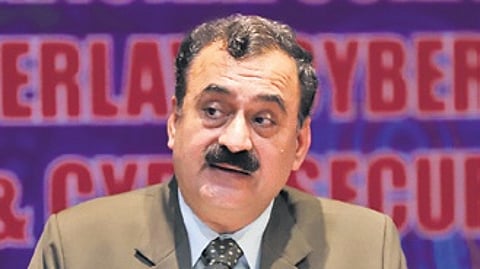

Delhi: National Crime Record Bureau (NCRB) data for 2022 reveals a concerning surge in cyber crimes across the country, with a 24.4% increase compared to the previous year.
In the national capital, cyber crime cases have almost doubled, posing a serious concern for security agencies. The number of cases rose from 345 in 2021 to 685 cases in 2022. In 2020, it was much lower with only 166 cyber crime cases.
Of the 685 cases reported in Delhi in 2022, as many as 184 cyber crime cases were filed for publication of obscene or sexually-explicit content online and 21 for publishing or transmitting obscene material. A total of 116 cases were registered in Delhi for publishing or transmitting pictures, audio or video clips depicting children involved in sexually-explicit acts.
Cyber criminals have evolved there methods in keeping with current tech advancements. Sophisticated tools like Artificial Intelligence (AI) have entered the paradigm of cyber offences; like in the recent case of the deep fake video of actor Rashmika Mandanna that went viral on social media.
To delve deeper into the rise of cyber crime cases, Ujwal Jalali speaks to founder and chairman of the International Commission on Cyber Security Law, Advocate Pawan Duggal, an expert in the subject. Excerpts:
How seriously do you view the surge of AI-generated ‘deep fake’ videos?
The misuse of AI is a growing concern. AI is a double-edged sword, bringing both opportunities and risks. Cyber-criminals are increasingly leveraging AI-powered tools to conduct sophisticated attacks. We have recently seen how a deep fake video of an actress took social media by storm. As AI continues to advance, it is crucial for policymakers to stay one step ahead, developing proactive strategies to mitigate the potential risks associated with AI-driven cybercrimes.
How can we effectively prevent such crimes? What role can the legal system play in addressing cybercrimes committed using AI?
2023 was the year of ‘Generative AI’. 2024 will be the year of regulation of AI. While eradicating cybercrime is a utopian notion, we can take several steps to minimize it. First, it is imperative to establish stringent legal frameworks to specifically address cybercrimes. India needs a new dedicated law to regulate AI and take stern action against deepfake content. There are loopholes in the laws. People are misusing it and spreading misinformation. It will be necessary to formulate a law to prohibit the use of deepfakes, making it a punishable offense. There is also a pressing need for extensive capacity-building and awareness programmes to educate users about cybercrimes, ensuring they are not unwittingly complicit in their own victimization.
There have been concerns over reports of cyber scams through Chinese loan applications. What is your view of such cases of cyber frauds?
China aims to target the Indian economy due to its past relationship with the nation. As a result, China is actively working to destabilise the Indian economy; gather as much data as possible through these loan apps. While many Chinese apps fall under the IT Act of 2000, they do not comply with Indian laws, causing significant financial losses, amounting to crores, to Indian citizens. There is a dire need for dedicated cybercrime courts, as the existing courts are overwhelmed cases of criminal prosecutions.
China has enforced a new law to regulate generative AI. Should India too consider something similar?
India is running slightly behind schedule. You have countries who have implemented dedicated laws on generative artificial intelligence; the European Union has negotiated a new draft AI law; you have states like New York in the US who have also come up with a new law on AI. So there is nothing preventing India from bringing a paradigm shift in its approach to AI. The chances of misuse of AI or the abuse of deep fake are going to be massive in the country until we take a strong stand over artificial intelligence, with appropriate clairty of the relevant rules, rights and responsibilites of various stakeholders, especially service providers.